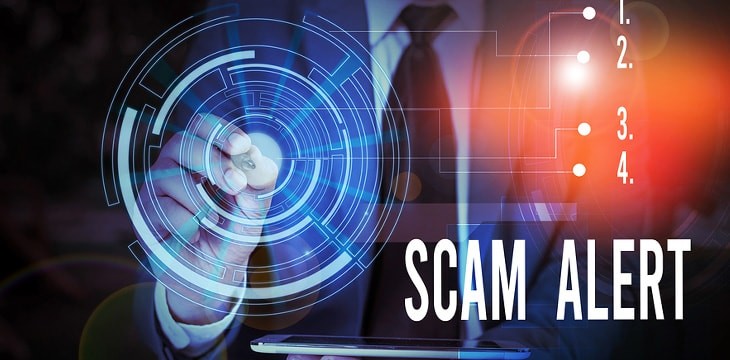|
Getting your Trinity Audio player ready...
|
A scam article published on Medium in early February is attempting to trick Bitcoin users into sending money and even their BSV wallet seed phrases. While the scam may be obvious to most, it’s an important reminder to always be vigilant online and to educate the less experienced.
The scam article was published on Medium from an account called “@Bitcoin_SV” on February 7, 2020, a few days after the hard fork that activated Bitcoin v1.0.0, or “Genesis”. It claims Bitcoin owners are able to “split” BCH and BSV coins to receive their money back, plus a fictional new coin called “Bitcoin Genesis (BSG)” using a sending address and an online wallet creator called “mybsvwallet”. Needless to say, any coins or seed phrases sent to these will result in loss of money.
Let’s be clear from the start: the page we’re referring to here IS A SCAM and the posting account is obviously fake. We won’t link to it here as we don’t want to extend its reach. However if you come across it some other way, DO NOT FOLLOW ITS INSTRUCTIONS, SEND ANY COINS TO ITS ADDRESS, OR CLICK ON ANY OF ITS LINKS. And especially, DO NOT ENTER YOUR WALLET SEED PHRASE INTO AN UNKNOWN WEBSITE… EVER. This article is for information and research purposes only, and an alert to watch out for any similar crimes.
There is no such thing as “Bitcoin Genesis (BSG)” coin. The hard fork that activated Genesis on Bitcoin (BSV) on February 4, 2020, was not contentious and did not result in an ongoing coin split. Anyone holding or using Bitcoin at the time of activation did not have to take any action, no matter what wallet or exchange they used.
A quick check of the Bitcoin address from the scam article shows it has not (at press time) received any coins and does not hold a balance. This is somewhat heartening, since the post is a month old—although scammers will sometimes send money to their own addresses to make it appear as though others are sending money there.
Even in 2020, Bitcoin scams abound
It’s sad that in 2020 we still need to provide such a warning. To experienced Bitcoiners, the page is obviously suspect. The information makes little sense to anyone who follows Bitcoin news and there are several common-sense reasons to not take it seriously (e.g. spelling and grammar errors) that should raise red flags even to the inexperienced.
However you may still know some people whose experience level is not high enough to realize this, or a scam may still catch you off-guard in a moment of distraction. There is also some “real” information in the offending post to make it appear genuine. Moreover, when coin splits and (some) hard forks occur, real information may appear online from new or anonymous accounts with instructions to follow. The attention surrounding the very-real Bitcoin hard forks and chain splits in 2017 and 2018 have led some to believe that any hard fork results in new coins and free money.
Scammers may also deploy fake social media accounts to “reassure” doubters the page is genuine, or seed confusion by pretending to be skeptical and saying “I’ll just send them a few bucks to test, what do I have to lose?” Don’t be fooled by these either—even if 1,000 people send a dollar, it’s worthwhile to the scammer.
The Medium account that posted the scam has only one post, and its profile page has no useful information. There is also a Twitter account with the same name, created in May 2019 and also with a solitary post (and is followed by at least two recognizable members of the BSV “community”) but we’re not sure if the Medium and Twitter accounts are connected.
For its part, Medium doesn’t make it easy to report posts that violate its rules, at least directly from the offending page. Medium’s reporting procedure is accessible from the Help pages.
Dr. Craig Wright has referred in speeches and articles to a day when stolen Bitcoins could be nullified (“turned to lead”) and possibly returned to their rightful owners via a legal process. At this stage though, that process is untested and would likely be expensive and troublesome for the victim. It’s far better to understand that (a) there’s still no shortage of scam attempts out there, and (b) Bitcoin life will be far easier for you if you can avoid falling for them, rather than having to deal with the consequences.
For genuine information on Bitcoin BSV, see BitcoinSV.com (for users), BitcoinSV.io and the Bitcoin Wiki (for developers), and of course CoinGeek.

 02-13-2026
02-13-2026 




